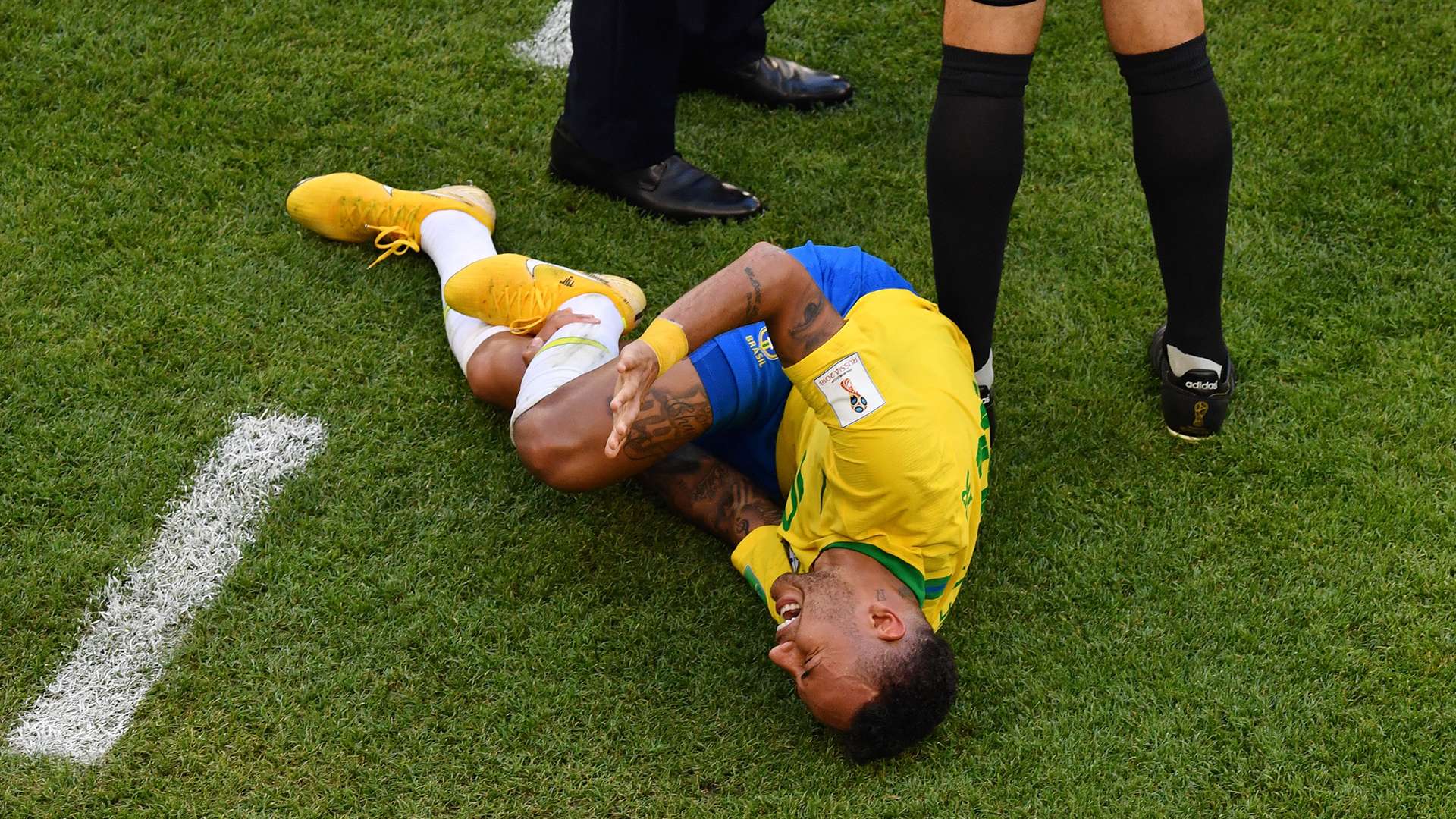Diving. Players do it, managers have a moan over it, and some critics have accused divers of 'ruining' the modern game and football itself.
But what is diving, and why do footballers feel the need to do so? The act of diving has, over the years, been perfected into an art by some players, with some mastering the craft of going to the ground with just the perfect amount of weight and theatrics.
It is a fine line, however: other players, including some of football's elite, have become notorious for throwing themselves to the floor in a bid to hoodwink match officials into awarding decisions in their favour.
Goal takes a look at players who have a tendency to dive, what the punishments are for diving, as well as how to recognise a 'simulation' and more.
What is a dive?
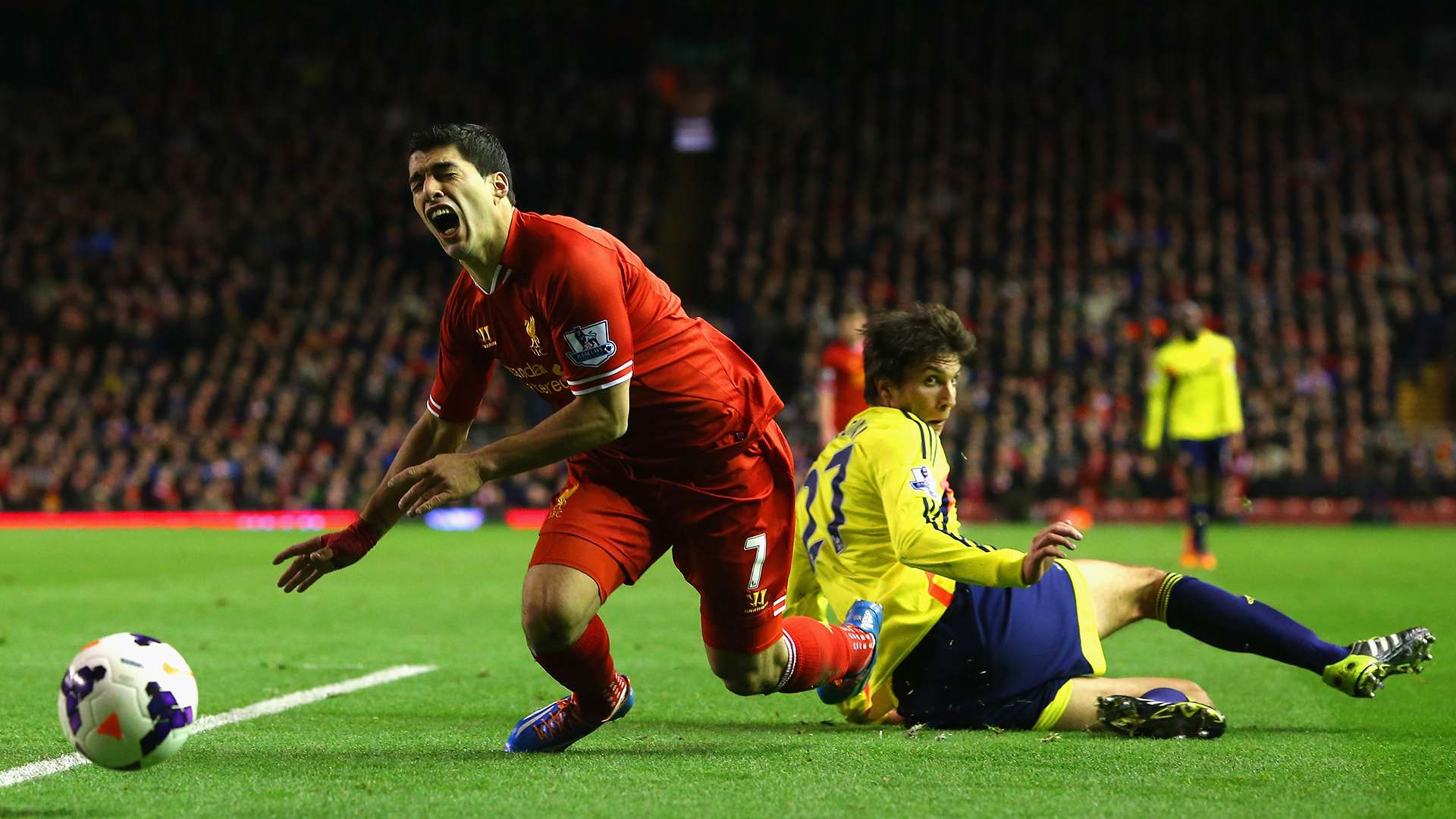
A 'dive' is the term used for when a player attempts to gain an unfair advantage on the opposition team through falling to the ground easily and feigning injury, giving the impression to the referee that a foul has been committed.
Deciding whether or not to award marginal fouls, especially when they occur inside the penalty area, has long been one of the most controversial elements of football and a regular talking point after games.
Referees are forced to decide in the blink of an eye between giving the fallen player the benefit of the doubt by awarding the penalty or ultimately seeing what was a fake attempt at trying to gain an advantage for their team.
Players generally dive in order to receive free-kicks or penalties or to earn opposing players yellow or red cards.
High-pressure and intense games where the scoreline is either even or tight may see more players go to ground more easily in order to gain an edge for their side.
Diving has been formally termed 'simulation' by FIFA.
Which players are known for diving?
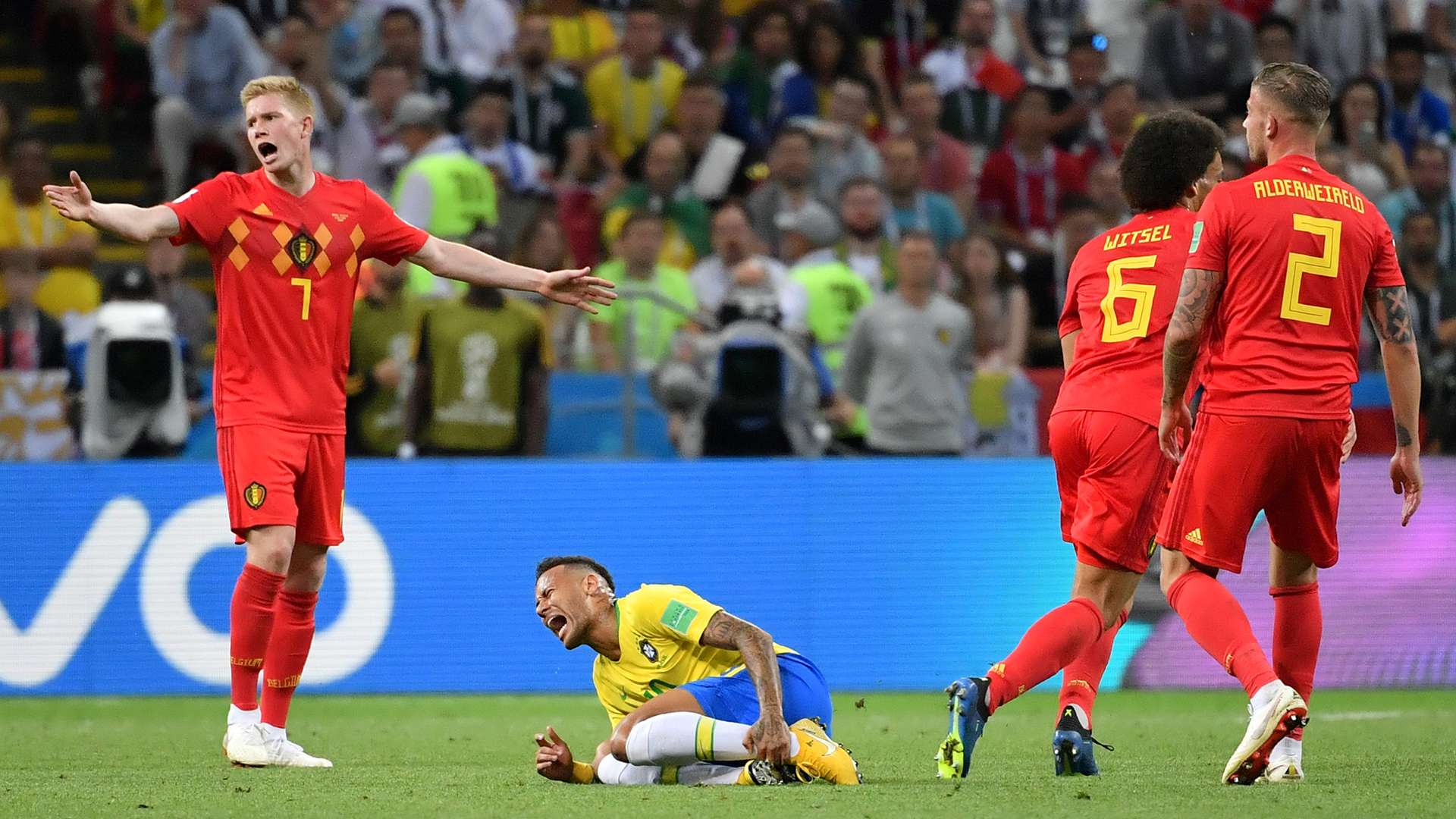 Getty
Getty
Brazil forward Neymar has picked up infamy for his diving theatrics across the World Cup 2018 in Russia, whose numerous tumbles spread across social media like wildfire, inspiring memes and mockery.
After Mexico lost to Brazil in the World Cup group stages, El Tri coach Juan Carlos Osorio berated the antics of the PSG star as the reason for his team's defeat.
Late on in the second half, Neymar was found writhing on the ground for nearly two whole minutes after Mexico's Miguel Layun trod on his ankle.
“This is a real shame for football,” Osorio said at the time. “We wasted a lot of time because of one single player.”
Interestingly enough, however, despite some players obviously taking the opportunity to dive as a means to gain an advantage for their team when the score is unfavourable to them, the Wall Street Journal analysed the Brazil international's diving patterns during the 2018 World Cup and concluded that his tumbles come more frequently when his side are winning.
Roughly 60 per cent of Neymar's falls come with the scoreline level, but the research showed that he actually goes to ground more when his team is winning – averaging 15 seconds on the ground when his team in front against only nine when the game is tied.
Additionally, Brazil's games had been tied for longer than when they had led – so Neymar flops more often when his team are in front, approximately once every eight and a half minutes, compared to once every nine and a half minutes when the game is tied.
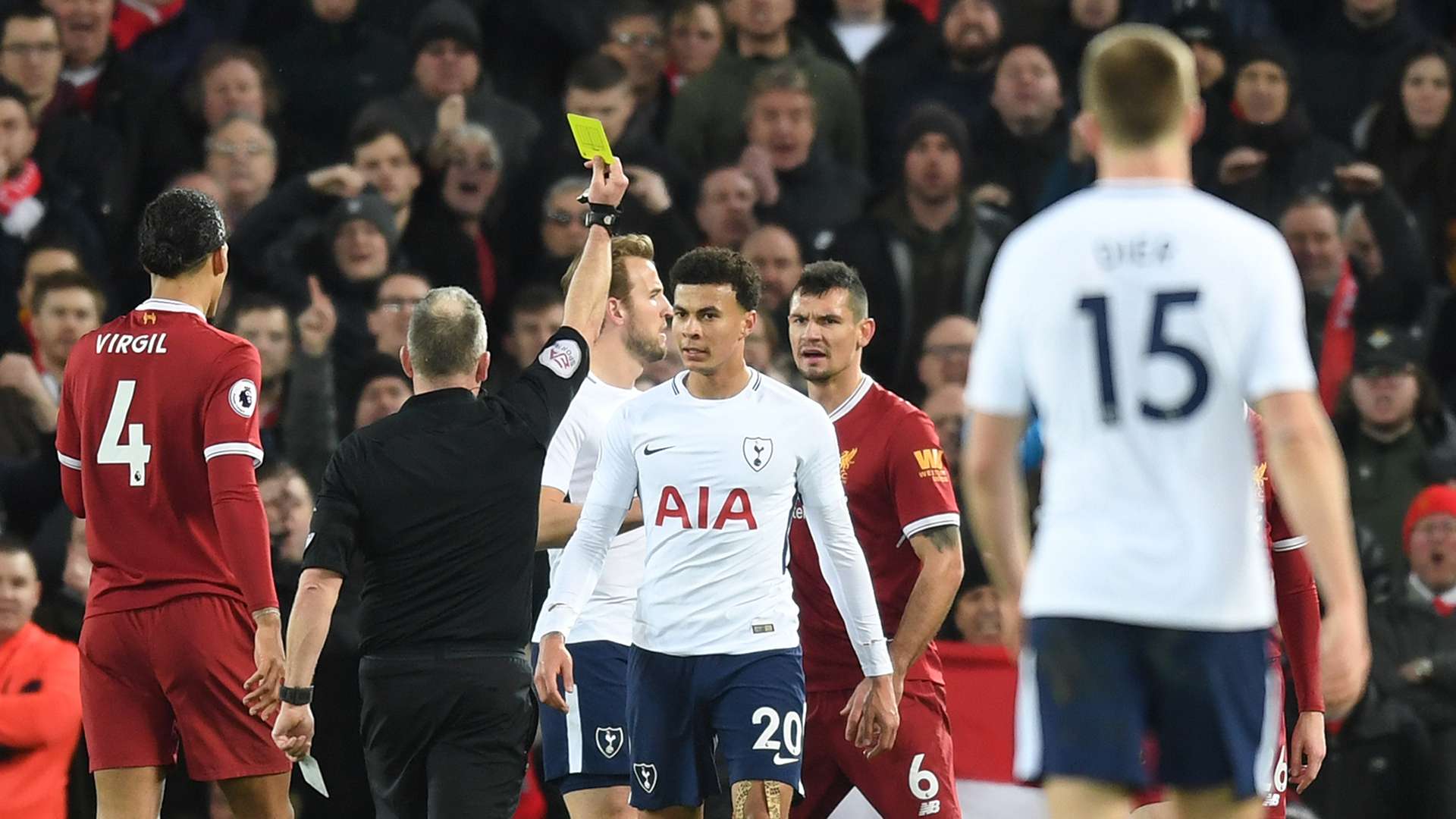 Getty
Getty
Tottenham's Dele Alli has also gained a notorious reputation for diving, earning the dubious distinction of being booked for simulation twice in one season when Spurs played out a 2-2 draw at Anfield in February 2018.
Manager Mauricio Pochettino had no excuses for the England international, but also lamented that too much discussion around driving will distort the game in the future.
“It was a yellow card,” Pochettino told reporters. “It happens. During different games, a lot of situations like this happen. The problem now is we are so sensitive about the situation. And then we are so focused on Dele Alli. The referee was right and perfect. It was a yellow card and nothing [else]. It’s too much sometimes. There is such a focus on this type of situation. I think it’s a minimal issue.
“Dele is not perfect. Nobody is perfect. He is a clever boy. He is a little bit nasty. Football is a creative sport in which you need the talent that grows in a very intelligent person, a very smart brain. But the problem today is that, more than this type of situation, I am worried we are going to change the game we know."
Former Liverpool and current Barcelona striker Luis Suarez also has a reputation for going to ground too easily, as do the likes of Gareth Bale, Sergio Busquets, Didier Drogba, Ashley Young and Radamel Falcao.
What technique goes into a dive?
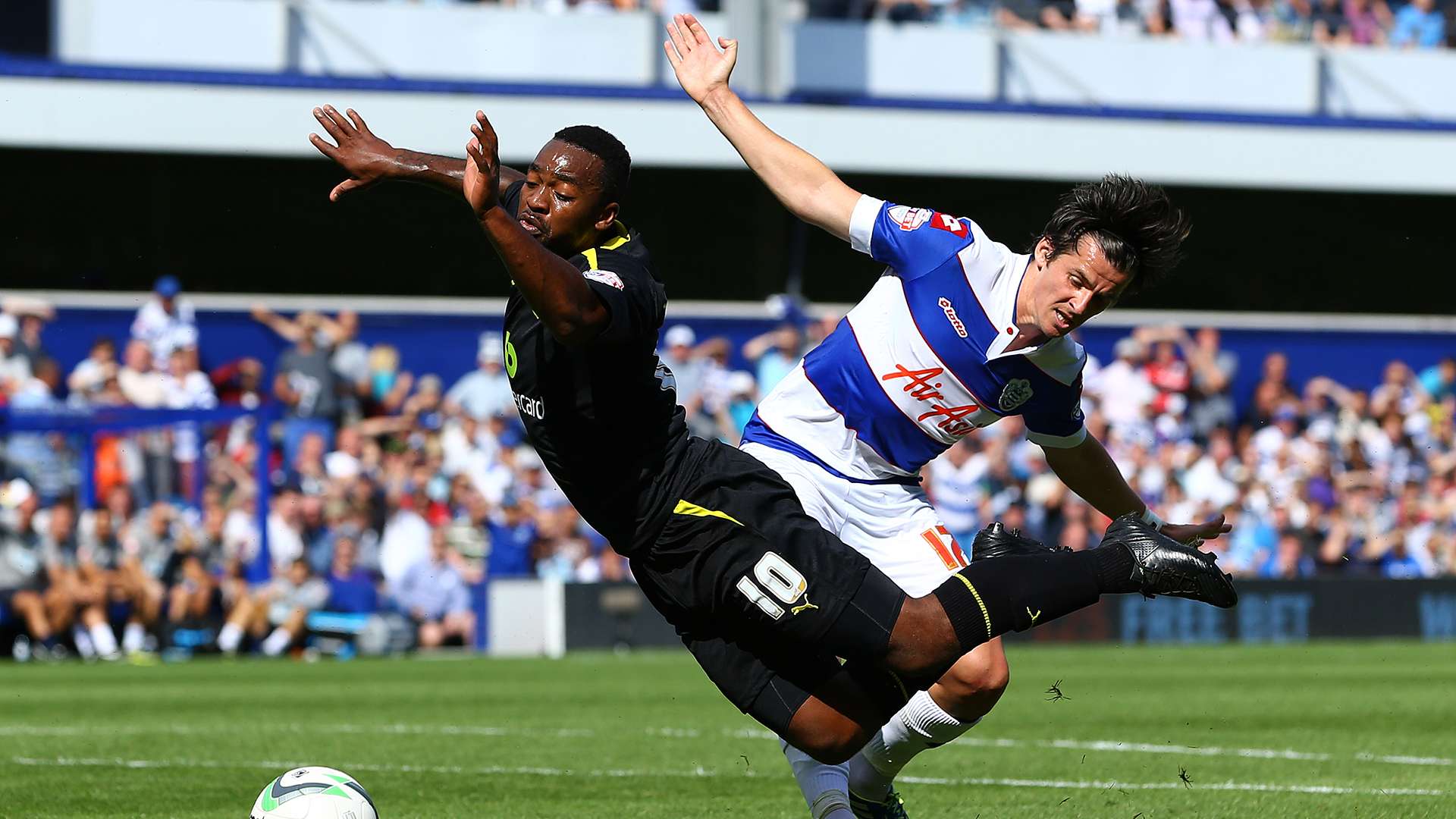 Getty
Getty
Usually, certain dives are fairly obvious to identify – such as when the player goes to ground in too dramatic a manner, almost after a short lapse in time following initial contact with the opposition team player.
Certain players such as Neymar and Suarez are also overtly theatrical with their dives, and are often victims of 'contact consistency' – nursing a body part other than when the impact occurred, such as when a challenge to the chest causes the player to fly to the ground or hold their face.
The 'archer's bow' pose is the biggest giveaway used to identify a diving player, which has them set in a position with their head tilted back, chest thrust forward, both arms raised and legs bent at the knee to lift both feet of the ground to the rear. According to the Telegraph, such motion is counter to the normal reflex mechanisms used to protect the body in the event of a natural fall.
Dr Paul Morris explained: "In most dishonest tackles the behaviour itself does not indicate dishonesty, the deception is revealed in the timing and co-ordination of the behaviours.
"But one action is unique to a faked fall - the archer's bow.
"This occurs in many dives but biomechanically it does not occur in a natural fall."
What are the punishments for diving?
The FA's rules state that attempts to deceive the referee through feigning injury or pretending to have been fouled through simulation must be sanctioned as unsporting behaviour, and punishable by a yellow card.
In November 2017, Everton player Oumar Niasse became the first player to be banned by the FA for diving, receiving a two-match ban for the offence in a match against Crystal Palace.
Most recently, Spurs hotshot Harry Kane was given a yellow for going to the ground in December 2018 in a home game against Wolves in the Premier League.
Of course, one of the most tangible punishments for diving do not come through cards, but through the way the reputation of the diving player is affected.
Referees tend to have limited patience for those who are seen as prone to go to ground more easily, as opposed to those players who rarely make a meal out of a challenge.
And so, similar in a 'Boy Who Cried Wolf' scenario, in the event that a player subsequently does merit the awarding of a penalty after being legitimately fouled inside the box, the referee may decide to simply turn a blind eye.
